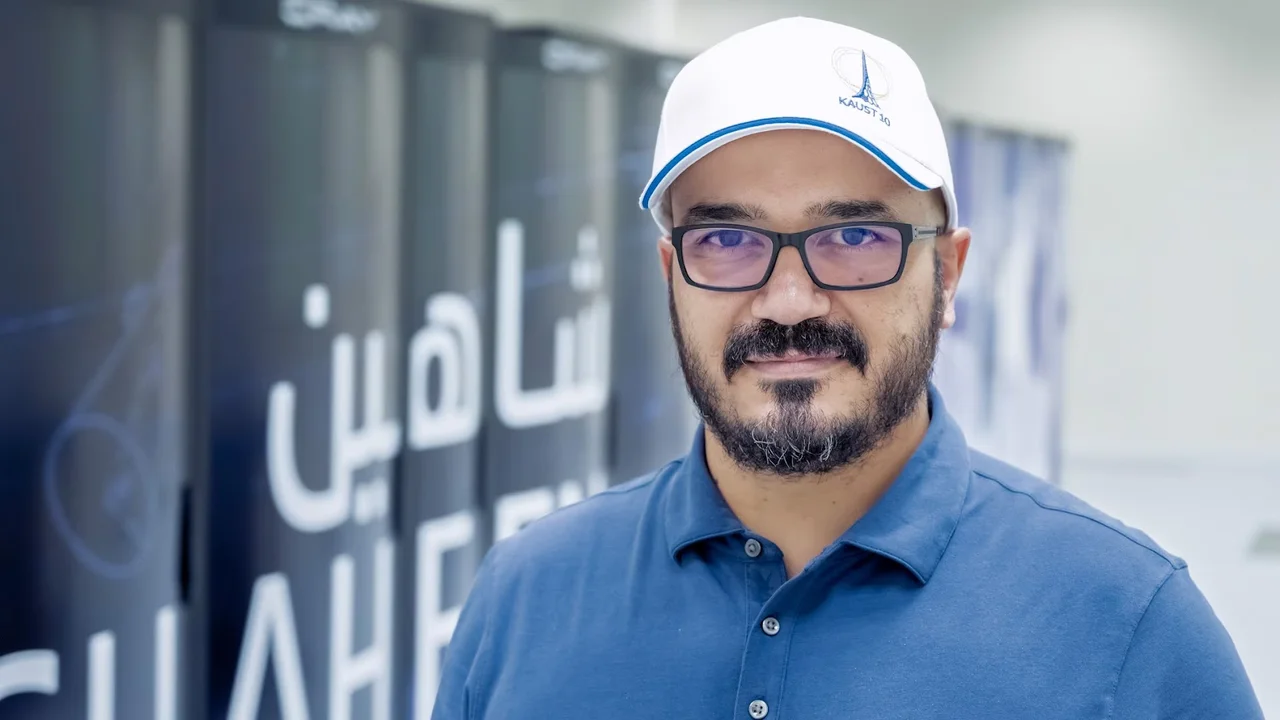
Hatem Ltaief
Dr. Hatem Ltaief is a Principal Research Scientist at KAUST. He works on mixed-precision algorithms and performance optimizations to help HPC scientific applications address the exascale challenges. His innovations have been recognized with the ACM Gordon Bell Prize (shared) for Climate Modeling in 2024.
Biography
Dr. Hatem Ltaief is a Principal Research Scientist in the Computer Electrical and Mathematical Sciences and Engineering Division at KAUST. His research focuses on mixed-precision algorithms, low-rank matrix computations, parallel programming models, and performance optimizations for high-performance computing (HPC) systems equipped with hardware accelerators.
He has contributed to integrating numerical algorithms into major scientific libraries including NVIDIA cuBLAS and Cray LibSci. Collaborating with domain scientists across diverse fields such as ground-based astronomy, geospatial statistics, computational chemistry, bioinformatics, and geophysics, Dr. Ltaief helps their scientific applications meet the exascale computing challenges.
Dr. Ltaief has co-authored all four of KAUST Gordon Bell finalist papers since 2022. In November 2024, he received the prestigious ACM Gordon Bell Prize (shared) in climate modeling for his contributions to developing an exascale climate emulator. This groundbreaking work addresses the computational and storage demands of high-resolution Earth System Model simulations and was achieved in collaboration with a distinguished team of experts.
He earned his engineering degree from Polytech Lyon at the University of Claude Bernard Lyon I in 2003, followed by an M.Sc. in applied mathematics in 2004 and a Ph.D. in computer science from the University of Houston in 2008. Before joining KAUST, Dr. Ltaief served as a research scientist at the Innovative Computing Laboratory in Knoxville Tennessee.
Dr. Ltaief has received multiple accolades including the Best Paper Award at the ACM PASC conference in 2018 and the Gauss Award for Best Paper at the ISC Conference in 2020. He currently serves as co-Editor-in-Chief of the ACM Transactions on Mathematical Software and as an Associate Editor-in-Chief of the Elsevier Parallel Computing Journal.
Research Interests
Dr. Hatem Ltaief's research focuses on mixed-precision algorithms, parallel numerical algorithms, parallel programming models, and performance optimizations for manycore architectures and high-performance computing.
Education
- Doctor of Philosophy (Ph.D.)
- Computer Science, University of Houston, Texas, United States, 2008
- Master of Science (M.S.)
- Applied Mathematics, University of Houston, Texas, United States, 2004
- Diplôme d'Ingénieur
- Modelization and Scientific Computing, Université Claude Bernard Lyon 1, Polytech Lyon, France, 2003
- Bachelor of Science (B.S.)
- Computer Science, Université Claude Bernard Lyon 1, Institut Universitaire et Technologique, France, 2000
Awards and Distinctions
- ACM Gordon Bell Prize (shared) for Climate Modeling (2024).
- ACM Gordon Bell Finalists (shared) at Supercomputing conference (2022, 2023, & 2024).
- Best Paper Award at the EuroPar Conference (2020).
- Gauss Award for best paper at the ISC Conference (2020).
- Best Paper Award at the PASC Conference (2018).
- Two Best Paper Awards at the EuroPar Conference (2016).
- Cray Center of Excellence co-PI (2015).
- Intel Parallel Computing Center co-PI (2015).
- NVIDIA CUDA Research Center PI (2012).
- Best Paper Award at the ACS/IEEE International Conference on Computer Systems and Applications (2011).
- Master Fellowship Award from the French Government (2003).
External Funding
- D. Keyes (PI) and H. Ltaief (co-PI) 2017; High Performance Seismic Imaging; Saudi Aramco
- D. Gratadour (PI) and H. Ltaief (co-PI) 2016; High performance computing for adaptive optics on extremely large telescopes; French Center for Scientific Research (CNRS)
- D. Keyes (PI) and H. Ltaief (co-PI) 2013; Preconditioned Iterative Solvers for MultiGPU-based Parallel PDE Simulations; Saudi Aramco
Questions and Answers
Why KAUST?
KAUST is home to world-class multi-disciplinary faculty members and scientists. And it operates one of the fastest Supercomputers hosted by an academic institution (i.e., Shaheen). These two ingredients are critical to solving nationwide challenges (i.e., Vision 2030), while globally impacting the research community.
Why High Performance Computing?
HPC rocks! It stands at the confluence of many inter-disciplinary leading-edge numerical simulations and is typically seen as the catalyst for scientific discovery. Working in HPC exposes you to these various exciting applications. You could be working with astronomers to accelerate their real-time simulations in finding exoplanets, or with geophysicists to efficiently render a high resolution subsurface image, or even computational chemists to help designing materials of future aircrafts. Join me!
